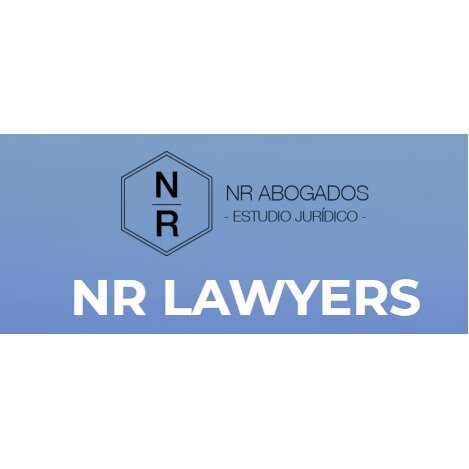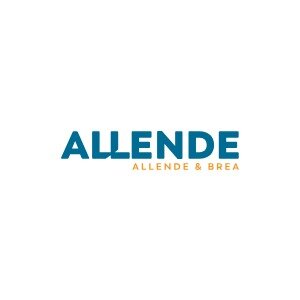Best Acquisition / Leveraged Finance Lawyers in Argentina
Share your needs with us, get contacted by law firms.
Free. Takes 2 min.
Or refine your search by selecting a city:
List of the best lawyers in Argentina
About Acquisition / Leveraged Finance Law in Argentina
Acquisition and Leveraged Finance refer to complex financial transactions where companies raise funds to acquire other businesses, often using a significant amount of debt. In Argentina, this area of law combines aspects of corporate, finance, securities, tax, and insolvency regulation. These transactions are frequent in mergers and acquisitions (M&A), private equity buyouts, or when local or foreign investors seek to expand by purchasing Argentine entities. Argentine Acquisition and Leveraged Finance transactions require careful legal planning because they must align with local laws, cross-border regulations, and market practice, especially given Argentina's unique currency control system and regulatory framework.
Why You May Need a Lawyer
Acquisition and Leveraged Finance deals involve multiple layers of legal and financial risk. Common situations where legal assistance is invaluable include:
- Acquiring or selling a controlling stake in an Argentine company
- Structuring financing for a leveraged buyout (LBO)
- Obtaining financing involving multiple currencies, domestic or international lenders
- Drafting, negotiating, or revising loan and security agreements
- Complying with complex Central Bank and securities regulations
- Managing cross-border funds flow and exchange controls
- Ensuring enforceability and proper due diligence
- Mitigating tax exposure and evaluating regulatory risks
- Dealing with insolvency, restructuring, or distressed acquisitions
A skilled legal advisor can help structure the transaction optimally, identify risks, and ensure compliance with both local and international laws, which is especially important in Argentina’s changing economic and regulatory environment.
Local Laws Overview
Key legal aspects relevant to Acquisition and Leveraged Finance in Argentina include:
- Currency Controls: The Argentine Central Bank imposes controls on foreign exchange transactions, which can impact repatriation of funds, loan repayments, and interest payments abroad.
- Security and Collateral: Argentine law recognizes several types of security interests, such as pledges, mortgages, and trusts. Proper registration and structuring are required to ensure effectiveness and priority.
- Corporate Approvals: Specific company resolutions may be required to grant guarantees or security, and there are restrictions on certain practices like financial assistance.
- Banking and Capital Markets Regulation: Financing transactions are subject to regulations by the Central Bank and, for public companies, the National Securities Commission (CNV).
- Insolvency Law: Argentine insolvency law affects the enforcement of lenders’ rights and the structuring of security packages.
- Tax Considerations: Taxes on financial transactions, interest payments, and capital inflows or outflows can have a material impact on deal structure.
- Foreign Investment Regime: Special considerations may apply when foreign entities are involved, including reporting and possible regulatory approvals.
These factors must be navigated carefully to ensure that acquisition and leveraged finance arrangements are effective and enforceable in Argentina.
Frequently Asked Questions
What is leveraged finance?
Leveraged finance is the use of borrowed money (debt) to increase the potential return of an acquisition or investment, typically by using the assets of the target company as collateral.
Are there restrictions on foreign loans in Argentina?
Yes, Argentina has currency exchange regulations that can restrict how loans are disbursed or repaid in foreign currency, as well as limit the ability to transfer funds abroad for repayment.
Can a local company provide security for a debt issued to its foreign parent?
Argentine law restricts the provision of financial assistance by a company to help third parties acquire its shares, but in some cases, group or upstream guarantees may be permitted with proper structuring and company approvals.
What forms of collateral are most commonly used?
Common collateral includes pledges on shares, movable assets, mortgages on real property, and security trusts, each with specific registration and enforcement requirements in Argentina.
How are acquisition finance transactions typically structured?
Financing can be provided through local or international lenders, using either Argentine or foreign law governed documentation, subject to compliance with Argentine regulations like currency controls and registration.
What tax implications are there for leveraged acquisitions?
Interest on loans may be subject to value added tax (VAT), income tax withholding, or stamp tax in Argentina, and these tax costs should be carefully assessed.
How does Argentine corporate law impact acquisitions?
Statutory rules require specific shareholder or board approvals for granting guarantees, and certain mergers or acquisitions may trigger mandatory tender offer or antitrust filing requirements.
How can lenders mitigate exchange rate risks?
Parties often use hedging instruments or structure deals in Argentine pesos to mitigate currency risk, but both options are affected by market conditions and regulatory constraints.
Can acquisition or leveraged loans be syndicated?
Yes, loan syndication is possible in Argentina, but lenders must comply with local registration and notification requirements, and currency control rules still apply.
What happens if the borrower defaults?
Enforcement of collateral and other remedies can be complicated by judicial processes and insolvency rules in Argentina, so careful advance planning and local legal advice are essential.
Additional Resources
- Argentine Central Bank (Banco Central de la República Argentina) - oversees financial regulations and currency controls.
- National Securities Commission (Comisión Nacional de Valores, CNV) - regulates capital markets and public offerings.
- Superintendency of Corporations (Inspección General de Justicia, IGJ) - handles corporate registrations and compliance in Buenos Aires.
- Argentine Ministry of Finance - issues regulations related to financial transactions and tax.
- Local law firms specializing in M&A, finance, or banking law for customized advice.
- Relevant industry associations, such as the Argentine Association of Banks (ABA).
Next Steps
If you are considering or involved in an acquisition or leveraged finance transaction in Argentina, take the following steps:
- Gather relevant information about the target company, intended financing structure, and any cross-border elements.
- Assess your objectives, timeline, and jurisdictional requirements for all parties involved.
- Consult with a reputable law firm or specialist in acquisition and leveraged finance to review your plans, identify risks, and ensure regulatory compliance.
- Consider parallel consultations with tax and financial advisors to structure the transaction most efficiently.
- Stay informed about changes to local laws, especially currency and financial regulations, which can affect your deal.
Engaging qualified legal counsel early in the process will help safeguard your investment, ensure regulatory compliance, and position your transaction for successful completion in Argentina’s dynamic business environment.
Lawzana helps you find the best lawyers and law firms in Argentina through a curated and pre-screened list of qualified legal professionals. Our platform offers rankings and detailed profiles of attorneys and law firms, allowing you to compare based on practice areas, including Acquisition / Leveraged Finance, experience, and client feedback.
Each profile includes a description of the firm's areas of practice, client reviews, team members and partners, year of establishment, spoken languages, office locations, contact information, social media presence, and any published articles or resources. Most firms on our platform speak English and are experienced in both local and international legal matters.
Get a quote from top-rated law firms in Argentina — quickly, securely, and without unnecessary hassle.
Disclaimer:
The information provided on this page is for general informational purposes only and does not constitute legal advice. While we strive to ensure the accuracy and relevance of the content, legal information may change over time, and interpretations of the law can vary. You should always consult with a qualified legal professional for advice specific to your situation.
We disclaim all liability for actions taken or not taken based on the content of this page. If you believe any information is incorrect or outdated, please contact us, and we will review and update it where appropriate.
Browse acquisition / leveraged finance law firms by city in Argentina
Refine your search by selecting a city.

















